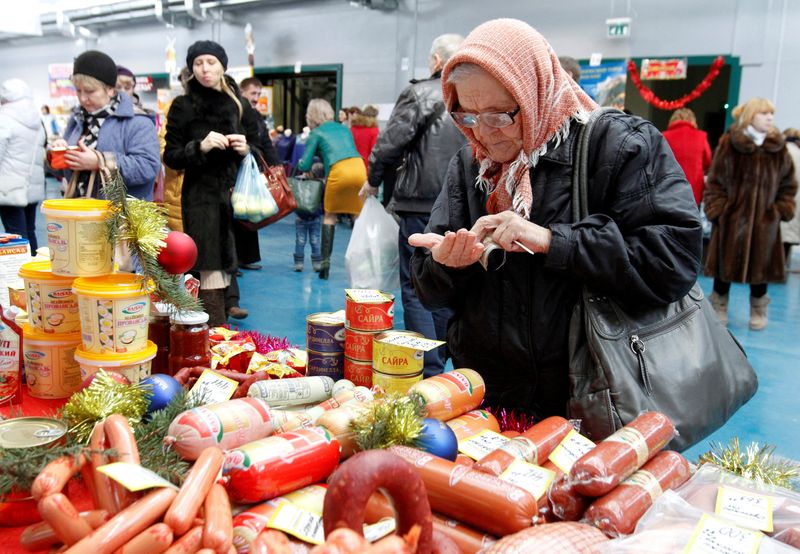MOSCOW (Reuters) - Weekly consumer prices in Russia rose for the first time since May, data published on Wednesday showed, less than two weeks after the central bank hinted at the end to its monetary easing cycle and following weeks of declining retail prices.
Russia's consumer price index rose 0.08% in the week to Sept. 26, after 11 consecutive weeks of decline, the Rosstat federal statistics service said. The last time weekly prices rose was in May.
Annual inflation slowed to 13.71% as of Sept. 26 from 13.92% a week earlier, the economy ministry said.
The central bank cut its key rate to 7.5% earlier this month, but suggested its rate-cutting drive could end soon, omitting guidance about studying the need for future reductions, as inflationary expectations rise.
Inflation surged earlier this year after Moscow launched what it calls its "special military operation" in Ukraine, prompting the central bank to hike rates to 20% in February in a bid to tame the pace of rising prices.
But falling living standards in recent months have weighed on consumer demand, hitting retail sales and leading to an extended period of deflation over the summer.
High inflation has for years been a top concern for Russian households as it dents their spending power and eats into living standards. Poverty rates are relatively high in Russia and surveys show more than half of all households have no savings.
Since the start of the year consumer prices have risen 10.32%, Rosstat said. At the same point in 2021, year-to-date inflation was running at 5.32%.

The central bank targets annual inflation of 4% and expects to return it to that level in 2024.
Deputy Central Bank Governor Alexei Zabotkin said on Wednesday the bank had not needed to provide a signal on the key rate's direction, with further decisions to be based on incoming data.